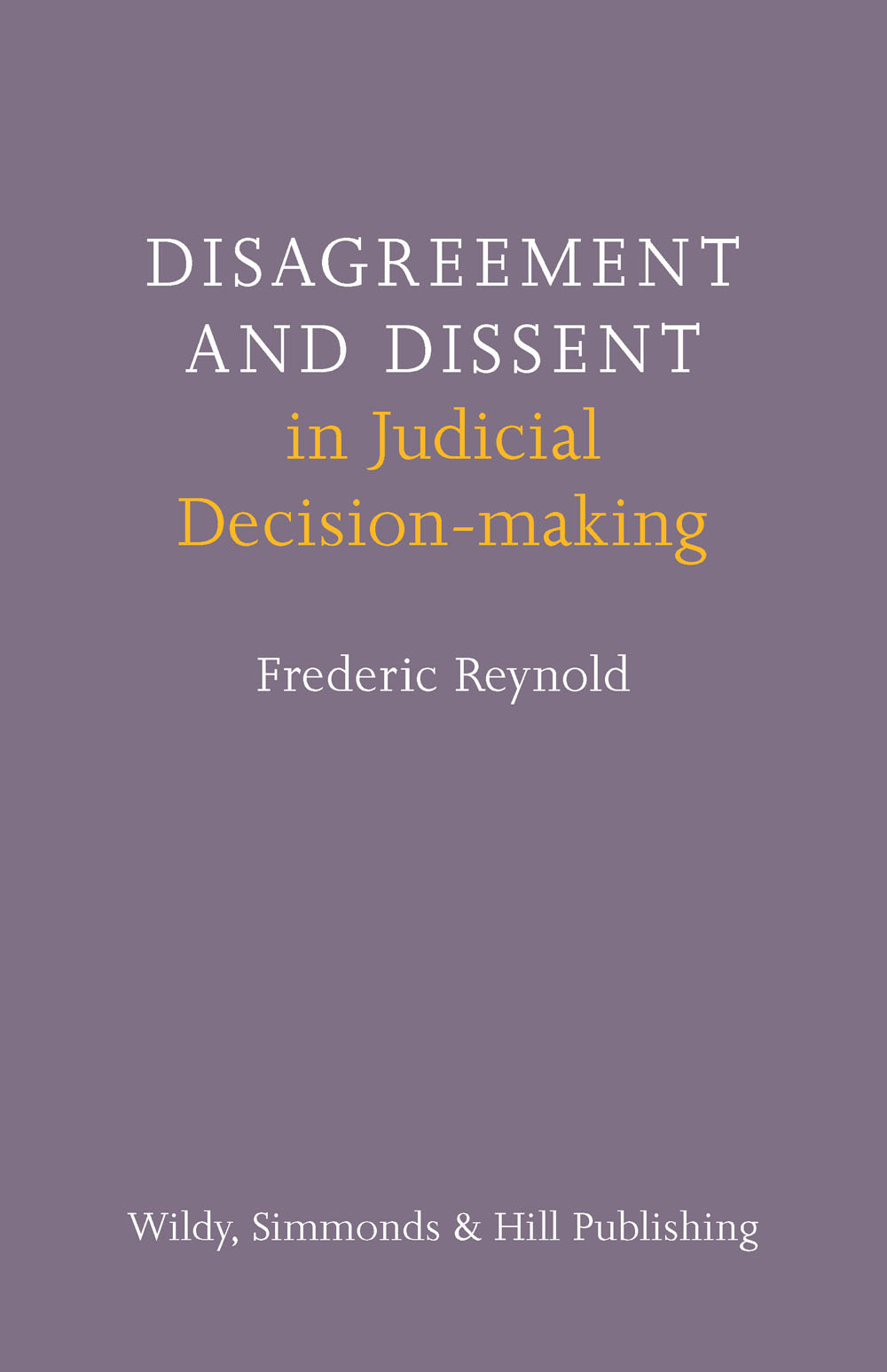
Wildy's Book of the Month: November 2013
Frederic Reynold provides an engaging analysis of disagreement and dissent in judicial decision-making. He explores the root causes of disagreement in cases decided over the last 25 years or so in the House of Lords and the Supreme Court, and the light they throw on the character of judicial decision-making at this level.
Disagreement and Dissent in Judicial Decision-making seeks to provide answers to a number of topical questions:-
Split decisions of the law lords and (since October 2009) justices of the Supreme Court have always exercised a particular fascination, and especially those decisions featuring a bare majority.
The analysis given here will throw light on a number of topical concerns, eg: the balance in the composition of, and the appointment of justices to, the Supreme Court; and the boundaries between judicial and political decision-making.